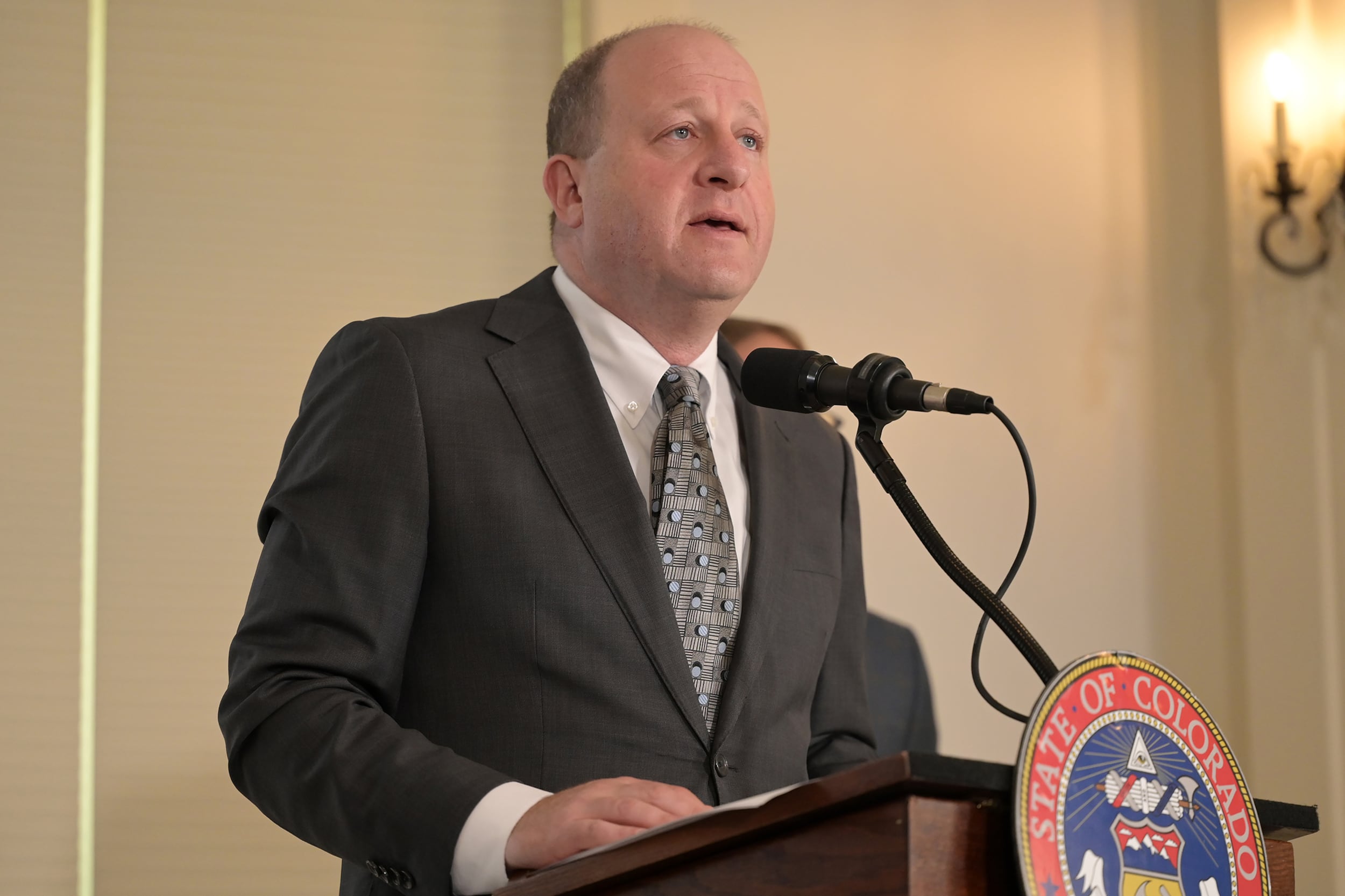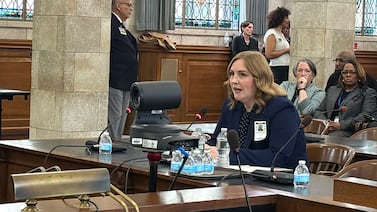Sign up for Chalkbeat Colorado’s free daily newsletter to get the latest reporting from us, plus curated news from other Colorado outlets, delivered to your inbox.
Gov. Jared Polis’ 2026-27 budget proposal unveiled Friday would increase statewide K-12 education spending by $276 million and fulfill funding promises made by lawmakers during this year’s legislative session.
The state’s universal preschool program would also get a small budget increase, while higher education institutions would be allowed to raise in-state tuition by the projected rate of inflation.
Overall, Polis proposed a $47.9 billion state budget for the 2026-27 fiscal year, or a 5.2% increase over this year’s $43.9 billion budget.
Polis’ proposal would bring total K-12 spending by the state and districts to about $10.3 billion, and it would increase per student spending to an average of $12,272, or $413 more than this year.
Polis’ budget follows the plan to phase-in the state’s new funding formula in seven years. It includes 30% of the $500 million needed to update the formula.His proposal also maintains changes to how the state calculates enrollment for the purpose of the budget. In 2026-27, the state will calculate student enrollment on a three-year average instead of four-year average, which is considered more accurate.
Polis’ budget includes a $14.3 million request to increase universal preschool funding in 2026-27, but he plans to submit an updated request to the General Assembly at the beginning of the year. This year, the program cost the state about $344 million.
Polis’ budget proposal also would allow colleges and universities to increase tuition by 2.6% for in-state students and 3% for out-of-state students. State figures show that would raise about $81.9 million more for college and university operations.
Polis also wants to include $14.2 million in the budget for colleges and universities to support salary increases and help keep in-state tuition increases equal to inflation.
In past years, college and university leaders have typically banded together to argue the governor’s proposal for higher-education funding isn’t enough. Higher education leaders have said his budget proposals don’t keep up with costs and they’ve been able to secure more funding from the legislature.
Last year, education took a prominent role in the budget after Polis pitched significant changes to the state’s education funding formula. Lawmakers agreed to alter how long the formula would take to phase-in and make changes to how the state calculates student enrollment for the purposes of the budget.
Polis’ 2026-27 budget proposal will have health care implications and sets up a debate about how to slow Medicaid costs.
Medicaid expenses have grown an average of 8.8% annually over the last decade, or almost double the revenue the state government can keep under the Taxpayer’s Bill or Rights, or TABOR, according to the governor’s office.
Polis said at a news conference Friday that if Medicaid spending were left unchecked, investments elsewhere wouldn’t be possible.
“The increases in Medicaid costs would crowd out essentially everything the state does,” he said. “We would largely just run schools and Medicaid. No money for roads, no money for public safety, no money for housing. So this is what we want to avoid.”
Colorado’s legislative session won’t start until January, but state law requires the governor release a budget proposal on Nov. 1 each year for the following fiscal year. The spending proposal helps signal the governor’s priorities.
While the powerful six-member Joint Budget Committee has the most say on the budget before it’s passed by the legislature, the governor can veto the entire budget or certain appropriations.
The Joint Budget Committee uses the governor’s draft to help craft a spending proposal during the legislative session.
Jason Gonzales is a reporter covering higher education and the Colorado legislature. Chalkbeat Colorado partners with Open Campus on higher education coverage. Contact Jason at jgonzales@chalkbeat.org.





